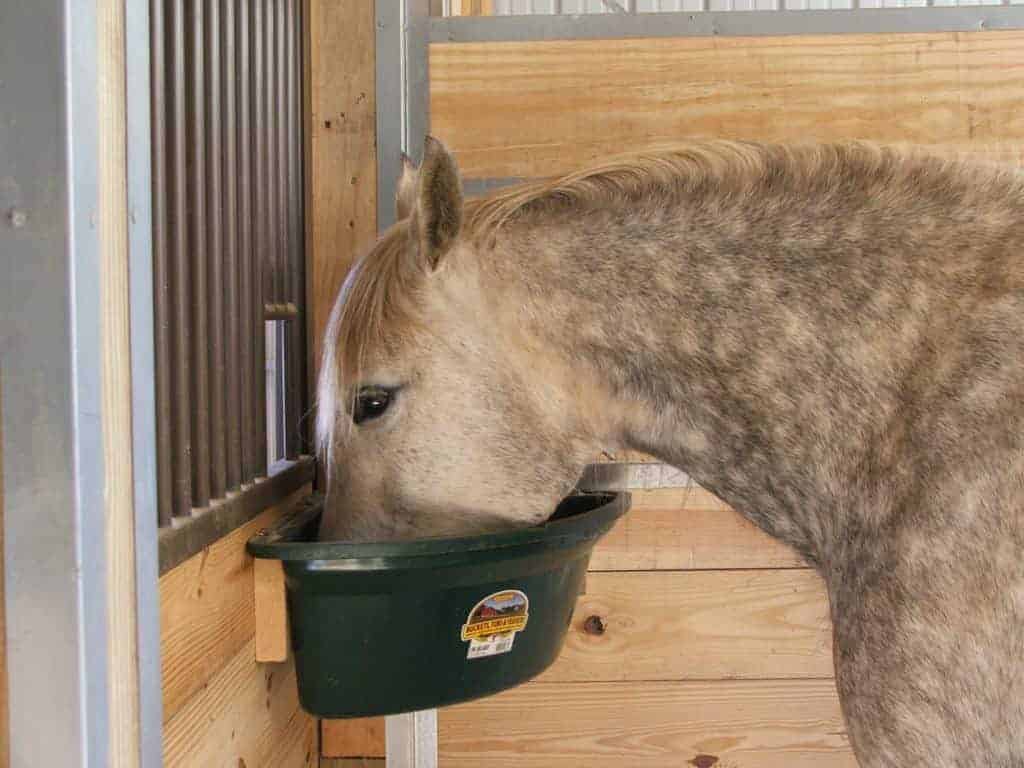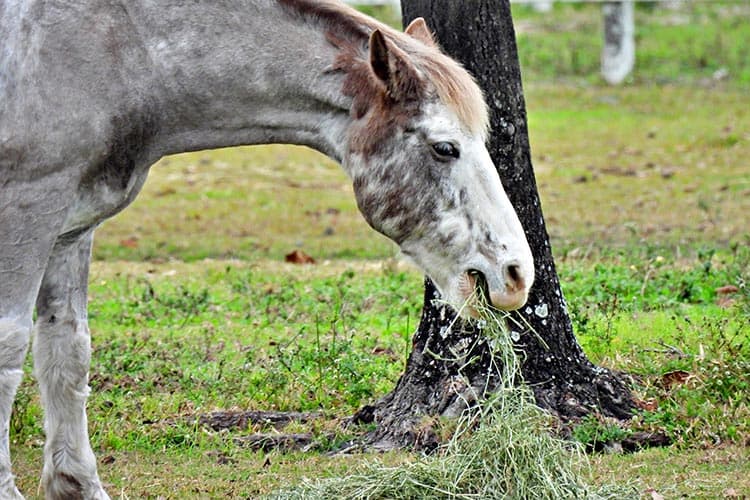
Valerian for Calming Horses: What We Know
Some calming supplements for horses contain valerian, an herb thought to interact with brain chemicals. Here’s what science says—or doesn’t say—about valerian for calming horses.
Proper feeding practices for foals, adult horses, and older horses

Some calming supplements for horses contain valerian, an herb thought to interact with brain chemicals. Here’s what science says—or doesn’t say—about valerian for calming horses.

A dappled coat might be a sign of optimum equine health and nutrition, but the reality is more complicated. One equine nutritionist offers advice on bringing out the bloom in your horse’s coat.

Buttercups can cause mouth pain and blisters, drooling, oral and gastric ulcers, colic, and diarrhea in horses that eat them.

When feeding flaxseed to your horses, knowing the difference between whole seeds, ground seeds, and meal is important. Here’s why.

Compared to soaking or leaving hay dry, steaming conserves beneficial microorganisms found while targeting harmful bacteria and respiratory allergens.

Colitis is inflammation of the large or small colon that can lead to diarrhea, proliferation of harmful bacteria, and even death in severe cases.

Horses might chew trees for a variety of reasons, such as boredom or nutritional deficiency. Learn about the benefits and risks, and how to protect your horses and your trees.

Learn about feed allergies in horses—including allergy testing—and what you can do to make sure your allergic horse gets the nutrition he needs.

Researchers compared foals born and raised in “traditional” breeding programs that included stabling with those in a free-roaming herd.

A study looking at fasting horses might help scientists better interpret microbiota test results in colicking horses.

Auburn researchers seek horse owners to complete their survey on EMS and PPID.

A senior gelding is urinating more frequently after alfalfa got added to his diet. Here are the possible reasons.

Slow feeders and haynets offer many benefits for horses, such as metered forage intake, but can also create safety issues. Here are solutions to common challenges.

Our nutritionist helps resolve a debate between friends about whether a horse with poor hoof quality would benefit from a hoof supplement or a properly portioned ration balancer.

Insulin dysregulation can cause abnormally high levels of insulin and sometimes glucose to circulate in the bloodstream, putting a horse at risk of regional adiposity, obesity, and/or laminitis. Learn more in our visual guide.

Is your horse’s annual wellness exam comprehensive? Learn about common wellness steps and how your veterinarian can help you address and correct problems you might encounter.
Stay on top of the most recent Horse Health news with
"*" indicates required fields